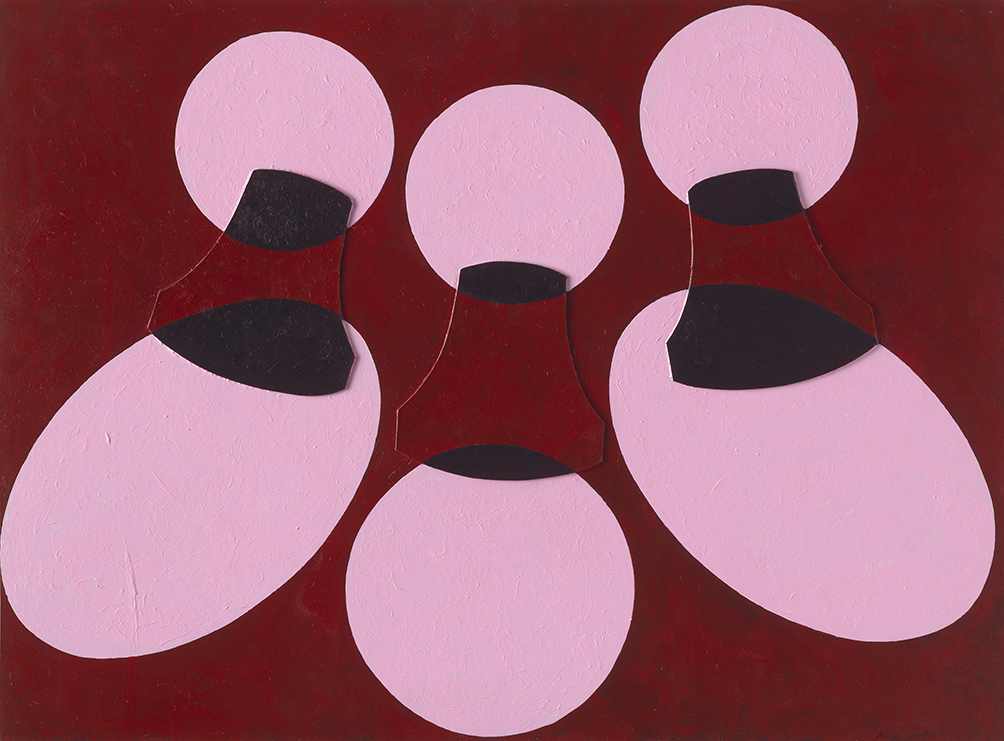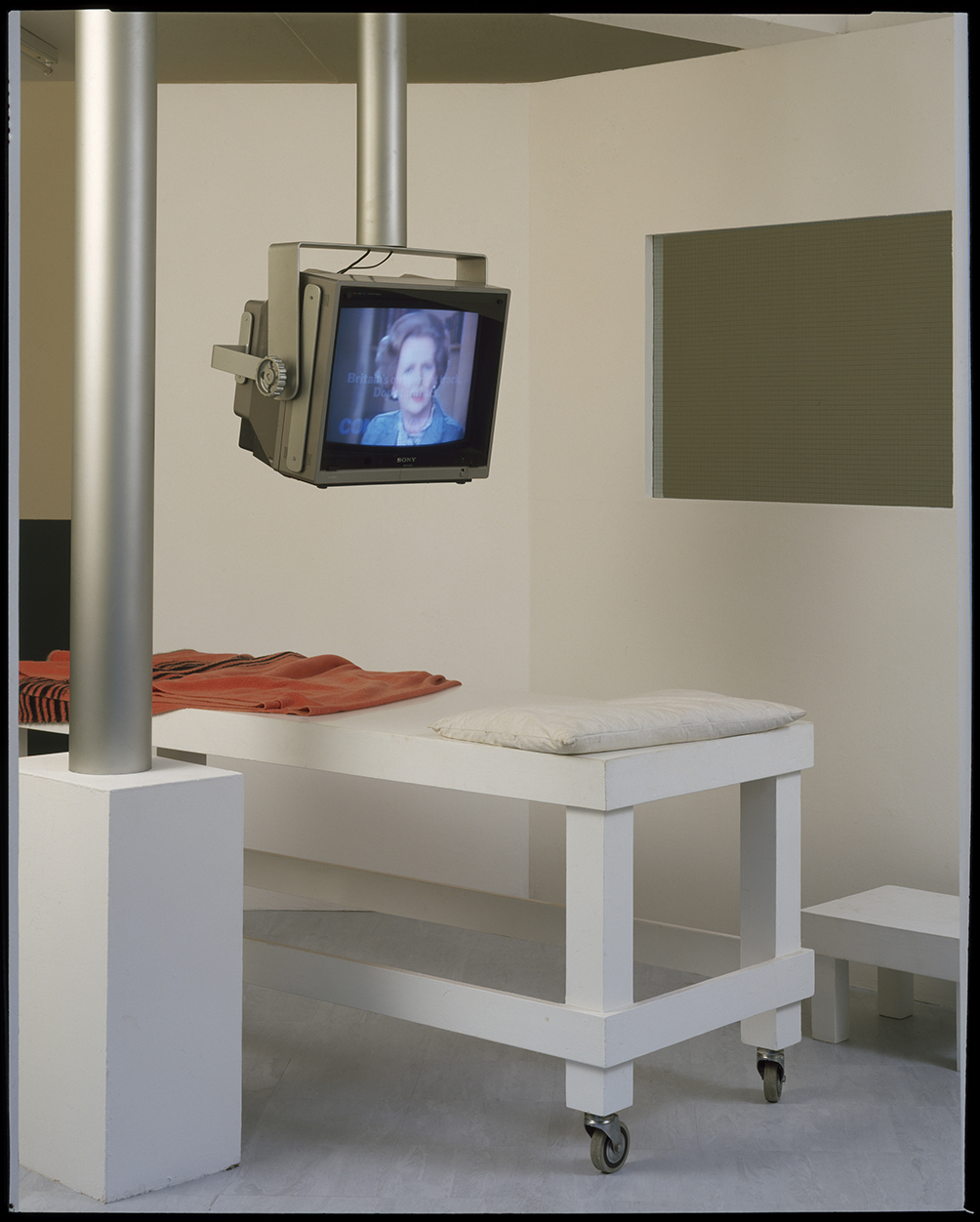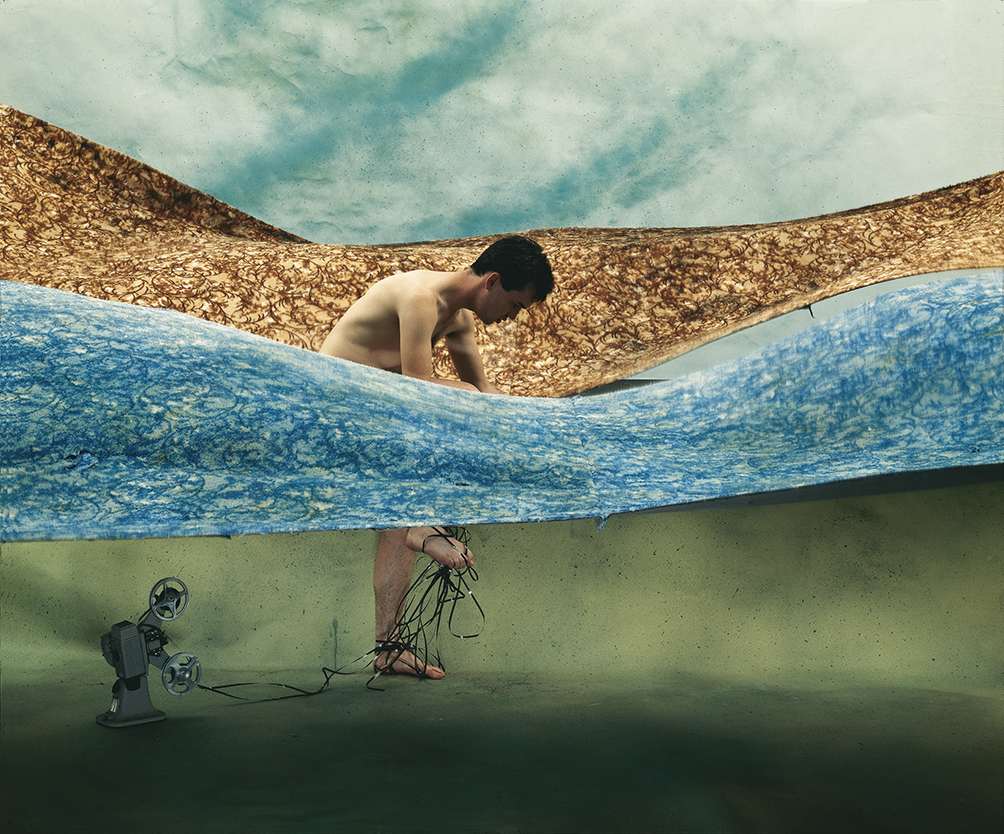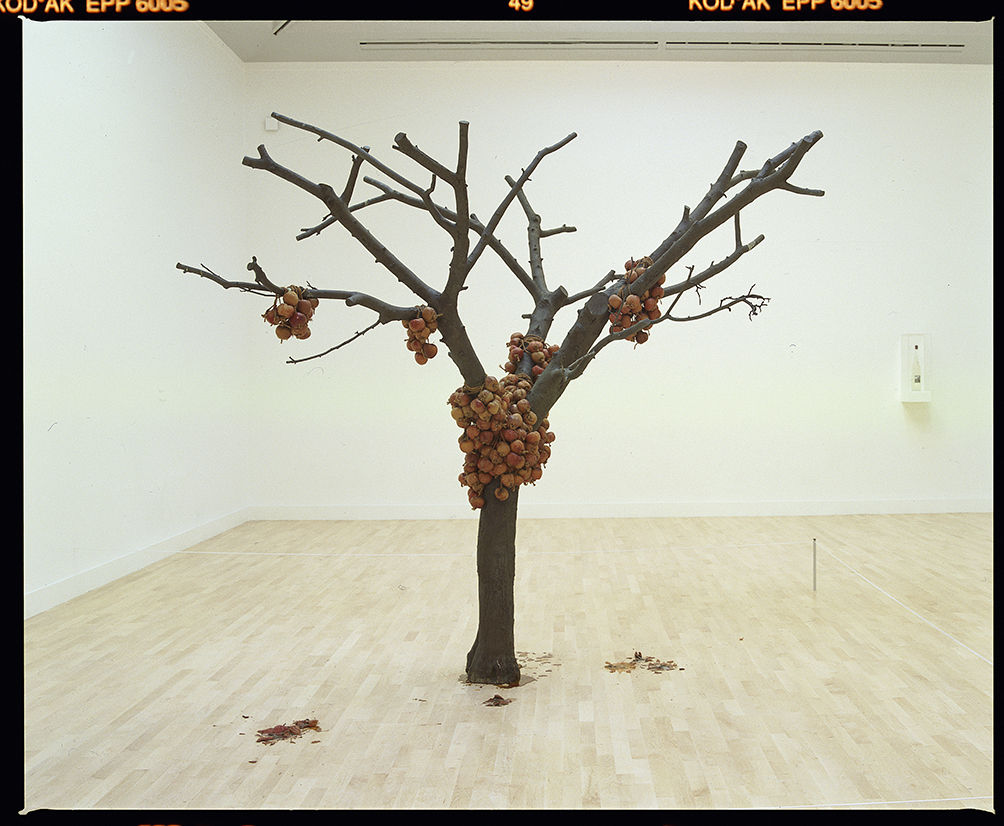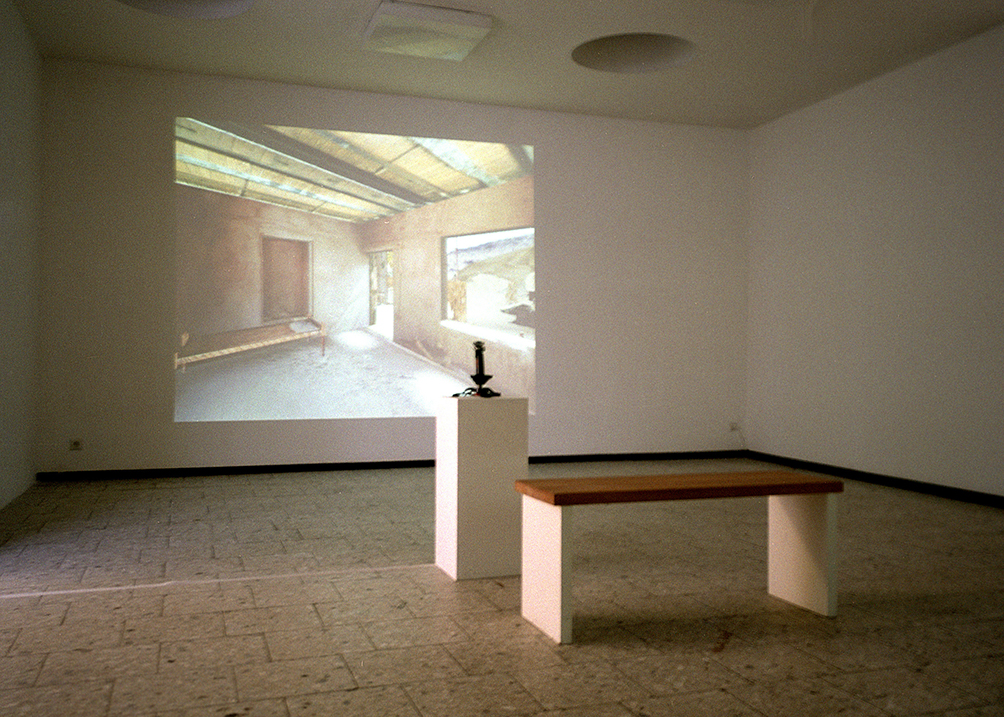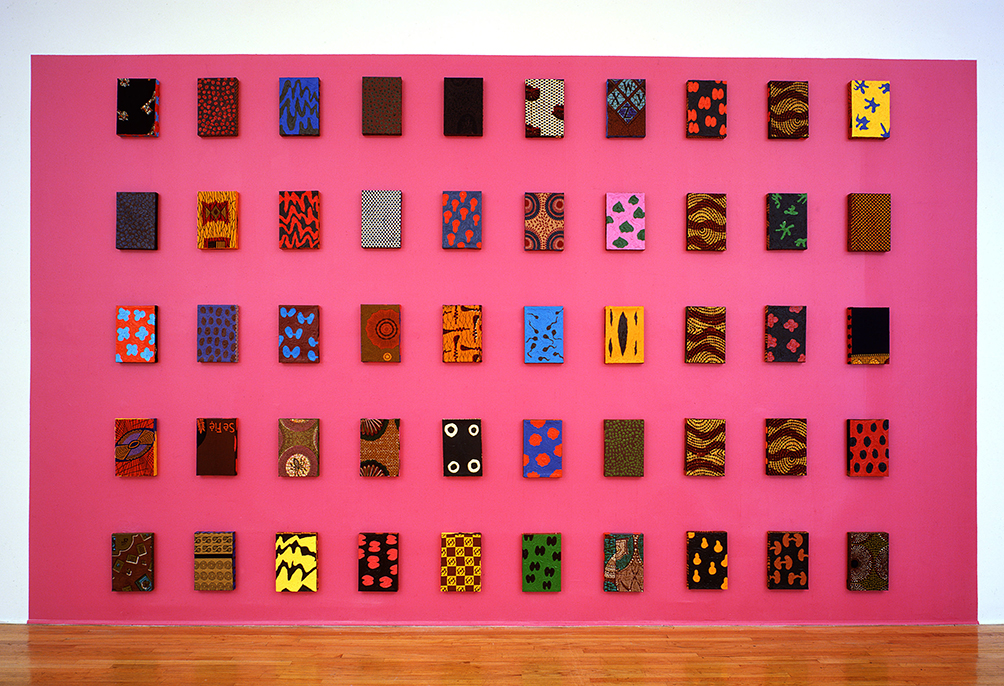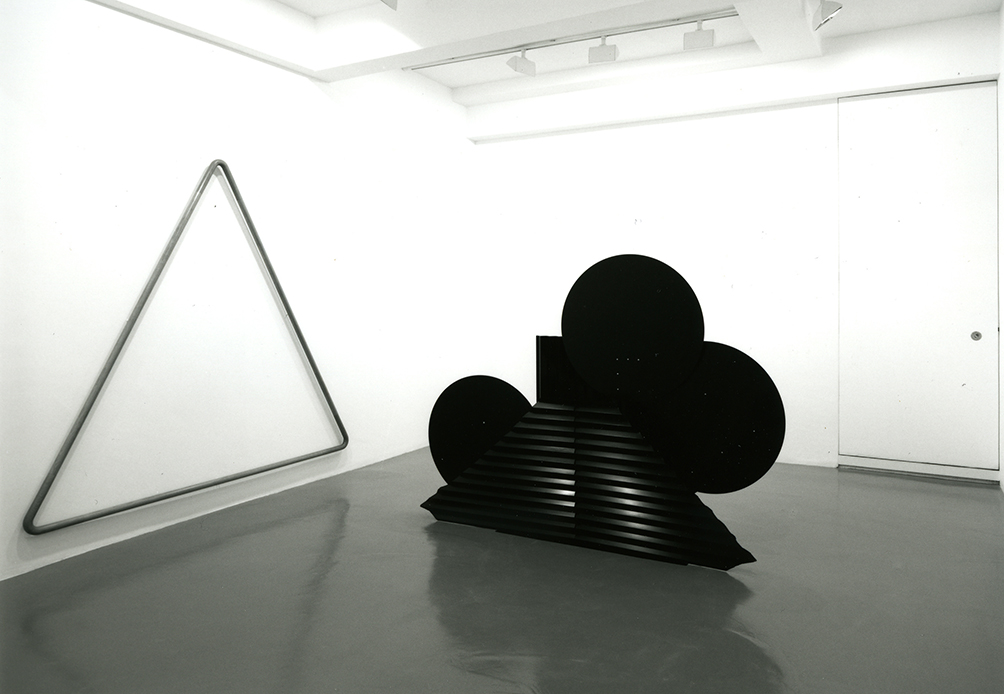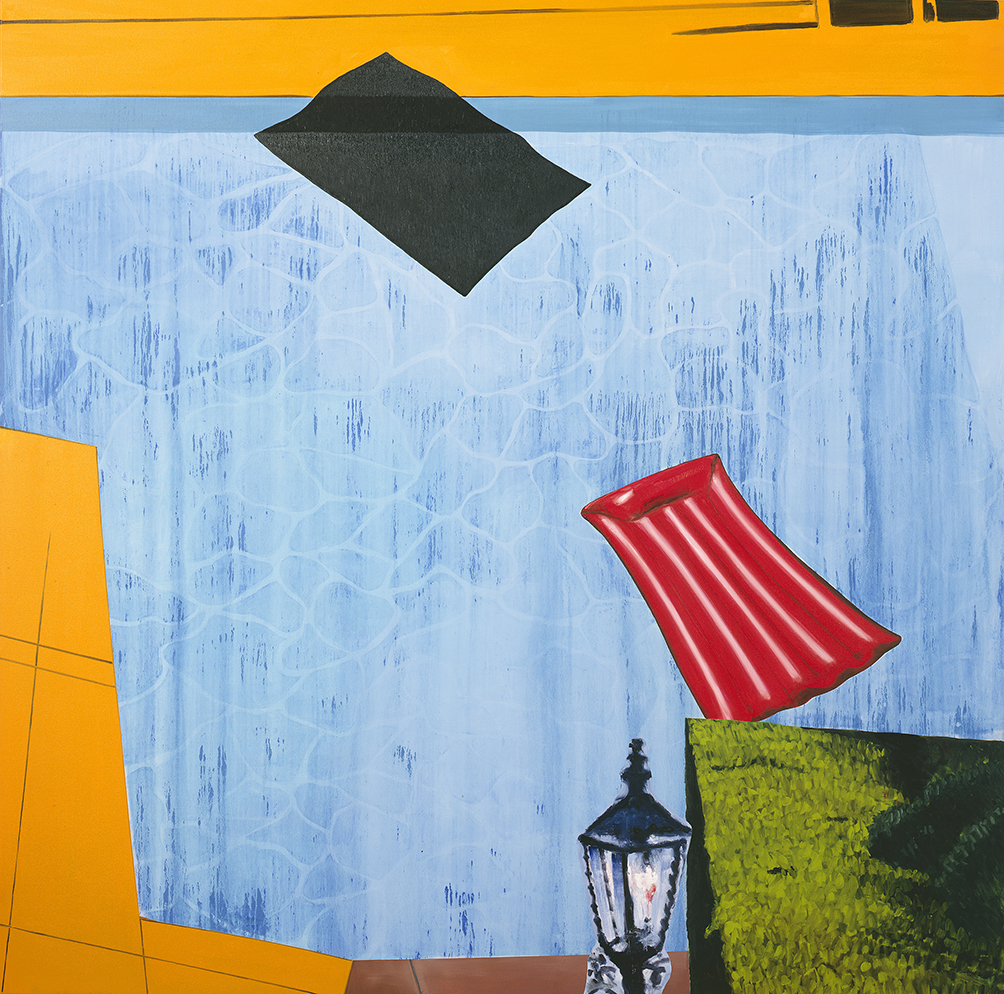Winners and nominees
First nominated in 1984, Gilbert and George were shortlisted a second time and won the Turner Prize in 1986 for their large-scale ‘photo-pieces’, a format they adopted in the early 1970s and which they continue to work in today.
Though nominated for the Prize in 1987, Patrick Caulfield was already an established artist, well-known for his representations of ordinary objects and everyday scenes in bright, block colours with black outlines.
The influential forerunner to British Pop art, Richard Hamilton, was nominated in 1988. His interest in technology informed much of his output and by the 1980s he had begun experimenting with computer-generated art.
Boyd Webb was nominated for the Prize in 1988, by which point he had moved from photographing curiously juxtaposed objects to constructing large-scale theatrical sets with actors.
After being nominated four times, Richard Long eventually won the Prize in 1989. By the 1970s he was known internationally for a series of sculptures made as the result of a number of epic walks he had taken around the world.
Vong Phaophanit was nominated in 1993 for his serene light installation Neon Rice Field. He is represented on Artimage for his collaborations with Claire Oboussier.
One of the most successful artists to emerge from the Young British Artists, or ‘YBA’ movement, Damien Hirst was first nominated for the Prize in 1992 before winning in 1995.
Nominated in 1999, Tracey Emin’s exhibits for the Turner Prize show included her famous installation, My Bed. The piece is once again on view at Tate Britain, after its current owner agreed to lend it for at least ten years.
The siblings were nominated in 1999 for their exhibition Gamma at Lisson Gallery. It demonstrated their unique approach to exploring socio-political themes through video, photography and sculpture.
Keith Tyson won the Turner Prize in 2002 and was commended by the judges for the way ‘his work embraces the poetic, the logical, the humorous, and the fantastical’.
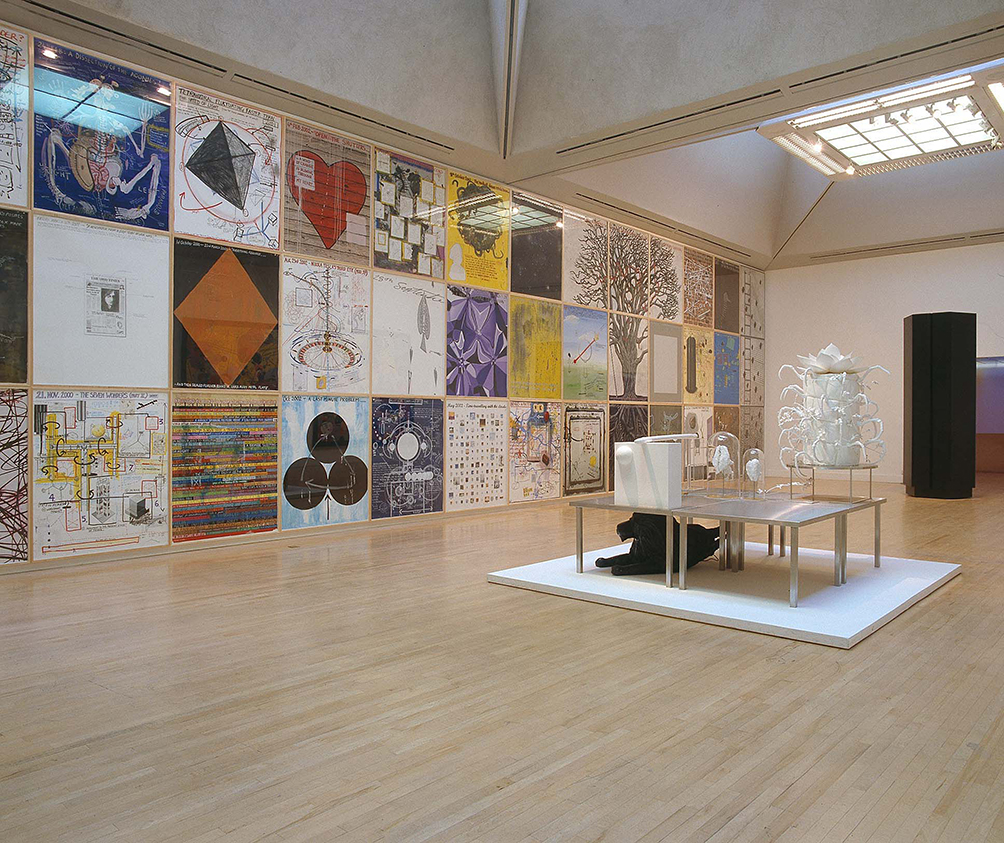
Anya Gallaccio’s nomination in 2003 recognised her innovative exploration of the language of sculpture, through time-based installations made using living materials.
The collaborators were nominated in 2004 for The House of Osama bin Laden, an interactive animation which investigated the aftermath of military occupation in Afghanistan.
The internationally recognised Yinka Shonibare was nominated in 2004 for his exhibition Double Dutch at the Museum Boijmans Van Beuningen, Rotterdam and his solo show at Stephen Friedman Gallery, London.
Nominated in 2009, Roger Hiorns was recognised for his breath-taking transformation of a derelict South London council flat, in a commission for Artangel, and his solo exhibition at Corvi Mora, London.
Dexter Dalwood was shortlisted for the Prize in 2010. His unique approach to painting draws on historical tradition whilst referencing contemporary events and individuals which bear cultural and political significance.
Find out more about the Turner Prize
The Turner Prize is an annual award which recognises the work of some of the most talented living artists in the UK today. The nominees for 2014’s Prize are Duncan Campbell, Ciara Phillips, James Richards and Tris Vonna-Michell.
You can view their nominated works in the current Turner Prize exhibition at Tate Britain, until 4 January 2015. The winner will be announced at an awards ceremony on 1 December 2014 and will be broadcast live on Channel 4. Find out more.
Lead image, clockwise from top left: Beautiful, amore, gasp, eyes going into the top of the head and fluttering painting, 1997 © Damien Hirst and Science Ltd, Photographed by Prudence Cuming Associates Ltd; A Line in Japan, 1979 © Richard Long; Large Field Array: Barber (detail of 134/300), 2006 - 2007 © Keith Tyson, Photographed by Prudence Cuming Associates Ltd; Dead Heads, 1989 © Gilbert & George. Photography by Gilbert and George Studio. All Rights Reserved, DACS 2014.
Other images, second from top: Life Without End, 1982 © Gilbert & George, Photography by Gilbert and George Studio; Wall Lights, 1988 © The Estate of Patrick Caulfield, Image: © Waddington Custot Galleries. Photo: Prudence Cuming Associates Ltd; Treatment Room, 1984 © R. Hamilton, Image: © Arts Council Collection, Southbank Centre; Postscript, 1983 © Boyd Webb, Whitechapel Slate Circle, 1981 © Richard Long, Photo: Richard Long; Light Curtain, 2009 © Vong Phaophanit and Claire Oboussier, Photo: Phaophanit and Oboussier Studio; The Physical Impossibility of Death in the Mind of Someone Living, 1991 (Sideview) © Damien Hirst and Science Ltd, Photographed by Prudence Cuming Associates Ltd; My Bed, 1998 © Tracey Emin, Courtesy The Saatchi Gallery, London / Photograph by Prudence Cuming Associates Ltd; Stasi City, 1997 (installation view) © Jane and Louise Wilson, Photo: Jane and Louise Wilson; Installation view Turner Prize, 2002 © Keith Tyson, Courtesy Tate Britain; Because I Could Not Stop, 2002 © Anya Gallaccio; The House of Osama bin Laden, 2003 (installation viwe, Galerie Christian Nagel, Cologne, 2005) © Langlands and Bell; Double Dutch, 1994 © Yinka Shonibare MBE, Photography Jean Vong; Roger Hiorns, Corvi Mora 2001 © Roger Hiorns, Image courtesy Corvi-Mora, London; Gatsby, 2008 © Dexter Dalwood, Photo: Dave Morgan. All Rights Reserved, DACS 2014.



